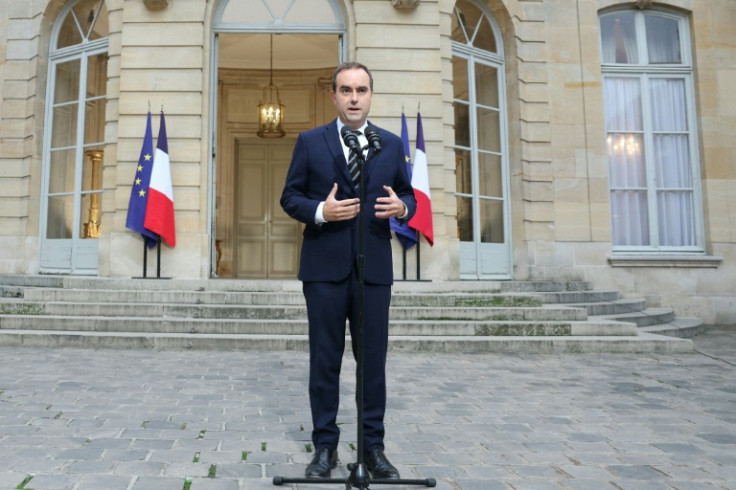
French President Emmanuel Macron named a new government on Sunday, putting together a team under Prime Minister Sebastien Lecornu as he struggles to pull the country out of a political crisis.
The new cabinet lineup was unveiled nearly a month after the appointment of Lecornu, Macron's seventh prime minister.
The latest premier risks being toppled by the opposition in a deeply divided parliament despite his efforts to obtain cross-party support.
Bruno Le Maire, who served as economy minister from 2017 to 2024, was named defence minister.
Roland Lescure was named to take over the economy portfolio, with the difficult task of delivering an austerity budget plan for next year.
Many of the other key ministers kept their jobs.
Foreign Minister Jean-Noel Barrot retained his post, the presidency said.
Interior Minister Bruno Retailleau, who has vowed to crack down on illegal immigration, and Justice Minister Gerald Darmanin both stayed put.
Rachida Dati, a scandal-ridden culture minister who is set to stand trial for corruption next year, also remained in place.
The presidency unveiled a total of 18 names, with more appointments to be announced at a later stage.
Far-right leader Marine Le Pen said the new cabinet lineup was "pathetic".
Jordan Bardella, the 30-year-old leader of her National Rally party, also mocked the government and reiterated the threat of censure.
"We made it clear to the prime minister: it's either a break with the past or a vote of no confidence," he said on X.
Bardella said the cabinet lineup was "decidedly all about continuity and absolutely nothing about breaking with the past that the French people are expecting".
Le Pen has said she is waiting to hear Lecornu's general policy speech on Tuesday before deciding on any further course of action.
Le Pen's National Rally party senses its best chance to come to power and has urged Macron to call snap legislative elections.
Lecornu might be toppled by the end of next week, said Mujtaba Rahman, Europe director at risk analysis firm Eurasia Group.
"It's less to me about the composition of the government and more about whether Lecornu will survive," he told AFP. "The mood is darkening."
Lecornu's two immediate predecessors, Francois Bayrou and Michel Barnier, were ousted in a legislative standoff over France's austerity budget.
France has been mired in deadlock since Macron gambled on snap elections in the middle of last year in the hopes of bolstering his authority.
The move backfired, with voters electing a parliament fractured between three rival blocs.
In early September, Macron named 39-year-old Lecornu in a bid to defuse the deepening political crisis. He plumped for one of his closest allies rather than seeking to broaden the appeal of the government across the political spectrum.
For the past month, Lecornu has held a series of consultations with centrist allies and opposition leaders on the left and right in a bid to agree on a non-aggression pact in parliament and adopt the budget.
Several left-wing parties have threatened to put forward a no-confidence motion against Lecornu.
In recent days, Lecornu has announced a number of concessions, including a pledge not to ram his austerity budget through parliament without a vote, but members of the opposition said they wanted more.
Over the weekend, Lecornu sent a letter to the leaders of Macron's centrist camp and the conservative Republicans pleading for unity.
"With only a very narrow majority, the government will have to make compromises with other political groups, without abandoning its convictions," said the letter, which was seen by AFP.







